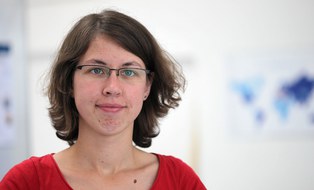Smart framework for real-time monitoring and control of subsurface processes in managed aquifer recharge (MAR) applications (SMART-Control)
Project type
Collaborative Research Project
Funding
SMART-Control is an European WaterJPI project of the 2017 call “Water resource management in support of the United Nations Sustainable Development Goals”.
German Federal Ministry of Education and Research (BMBF)
Agence nationale de la recherche, France (ANR)
Research Promotion Foundation, Cyprus (RPF)
Fundação de Amparo a Ciência e Tecnologia do Estado de Pernambuco, Brazil (FACEPE)
Fundação de Apoio à Pesquisa do Estado da Paraíba, Brazil (FAPESQ)
Duration
02.2019 - 01.2022
Project coordinator
Technische Universität Dresden, Research Group INOWAS
Cooperation partners
Berlin Centre of Competence for Water (KWB), Germany
adelphi research gGmbH, Germany
Umwelt- und Ingenieurtechnik (UIT) GmbH Dresden, Germany
French Geological Survey (BRGM)
Lyonnaise des Eaux/Suez, France
Universidade Federal de Pernambuco (UFPE), Brazil
Universidade Federal da Paraíba (UFPB), Brazil
University of Cyprus (UCY)
Background
Enhancing groundwater recharge by storing surplus water in the subsurface in times of high availability followed by recovery in times of high demand represents a low cost technology that increases the resilience of water supply infrastructures to extreme hydro-climatic events. This technique, referred to as managed aquifer recharge (MAR), represents a viable adaptation solution for sustainable water resources management while it reduces the impact of water scarcity by increasing seasonal water availability. MAR can improve food security and reduce harvest failure risks as the resilience against extreme weather events such as droughts is increased.
Objectives
The main objective of SMART-Control is to reduce the risks associated with the application of sustainable groundwater management techniques by developing an innovative web-based real-time monitoring and control system (RMCS) in combination with risk assessment and management tools. The system consists of an in-situ real-time monitoring system and a web-based platform for control, modeling and forecasting. For this, the existing INOWAS platform will be enhanced with new features. Measurable Performance Indicators (PI) are used to assess risks focused on artificial groundwater recharge applications, such as health risks from microbial contamination, environmental risks, low recovery rates, clogging and short residence times.
Case studies
Six case studies in Germany, France, Cyprus and Brazil were selected, applying various managed aquifer recharge methods in different hydrogeological, climatic and socio-economic conditions and pursuing a number of objectives: increasing water availability in urban areas, preventing saltwater intrusion into coastal aquifers, and reducing extreme climate events. Reducing the risks associated with the operation of MAR facilities makes them controllable, increases their capacity and the social acceptance of water reuse methods, and demonstrates their suitability as adaptation measures against climate change.
Project website
Contact
 © CS
© CS
Head of Research Group INOWAS
NameDr. Catalin Stefan
Projects: AGREEMAR, FARM, R-MAR
Send encrypted email via the SecureMail portal (for TUD external users only).
Research Group INOWAS
Research Group INOWAS
Visiting address:
Pratzschwitzer Str. 15, Room 210b
01796 Pirna
 © Catalin Stefan
© Catalin Stefan
Research Associate
NameDr. Jana Glaß
Parental leave
Send encrypted email via the SecureMail portal (for TUD external users only).
Research Group INOWAS
Research Group INOWAS
Visiting address:
Pratzschwitzer Str. 15, Room 205
01796 Pirna
